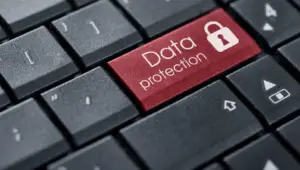
The state of privacy and cybersecurity concerns throughout Latin America varies significantly between each country, but the region as a whole is experiencing growing pains in these areas. From corrupt governments using developing technologies for surveillance to those that limit Internet freedom, here are some of the biggest concerns to be aware of in Latin America.
Surveillance Opportunities
New technology means new opportunities for government, law enforcement and businesses to look into the private Internet activity of their citizens. Without protection in place against this type of surveillance, Internet monitoring can take place on any device that a person uses to access the Internet in that Latin American country. Depending on which entity controls the Internet Service Providers in that region, the government may already be in charge of the data and have unrestricted access to it.
Cyber attacks
Cybersecurity regulations and measures are not as robust in Latin America as they are in more developed regions. This lack of protection can lead to opportunistic cybercriminals taking advantage of the vulnerabilities on critical systems. While the prevalence of these attacks has to lead to more action to address them throughout the region, there are still many ways that attackers can get into the business, government and personal systems. Companies can lose critical data or end up having to pay ransoms to get their systems operational, the government could have critical infrastructure disrupted, and citizens face the risk of identity theft and other issues occur.

A virtual private network service, such as Surfshark, can mitigate some of the risks that private users face when they go online in Latin American countries. A VPN makes it nearly impossible for an attacker, ISP, law enforcement or government agencies to see someone’s Internet usage so they can browse resources peacefully and privately. Another benefit of VPN services is that it eliminates geolocking of content, which can be a point of frustration for many Internet users.
More Countries are Developing Data Protection Regulations
The good news is that more countries throughout Latin America are realizing the importance of data protection regulations and are looking to the EU, US and other areas for guidance on how to proceed. These data protection regulations come in many forms but generally seek to limit the amount of data that companies can collect from individuals, the way that they use this information, and how they store it. Opt-in consent is a common component of these proposed regulations.
Another change in regulations comes from shifting to a data breach model where authorities are also notified when the organizations let individuals know about data loss and compromised systems. A benefit to this approach is that agencies in charge of country-wide cybersecurity can track incidents as they occur and collaborate with similar agencies in other Latin American countries to determine attack patterns and share information.
Demands for Data Retention

On the other hand, some Latin American countries want to have more data retained on its citizens. These governments typically have more of an authoritarian or military-run approach, which leads to wanting more control and visibility into the Internet usage of people living in and visiting the country. They can go to an Internet Service Provider and pull all of the information on a particular user’s activity. In some cases, government officials have taken down entire apps while trying to get them to comply with data requests. Services that don’t retain data can offer users protection against this activity, but they may not be able to legally operate in regions that are highly restrictive and controlling in this respect.
Outdated Laws
Some countries struggle to apply their laws to the modern cybersecurity landscape. Without adapting their regulations to the current environment, their businesses can’t protect themselves against cyberattack and their citizens have limited privacy and protection while they use the Internet and other technology resources in that location. Many laws that are on the books get in the way of properly protecting systems against cyber attacks or allowing people to use the Internet in a way that protects their privacy and individual freedoms. Lawmakers that aren’t tech-savvy or familiar with the Internet can get in the way of creating effective legislation that also considers user rights as well.
Limited Internet Freedom
Not all countries in Latin America promote Internet freedom. Progressive countries have a similar environment that promotes freedom of speech and the right to a free Internet, but others crack down on certain activities, censor websites and otherwise make it difficult to use the Internet without massive oversight. Some of the regulations that are proposed to combat cyber attacks actually end up doing more harm to Internet freedom than they do good with cybersecurity. Common issues with these laws include measures that make it easy to silence political opposition and even jail people who are critical of the government.
Overreaching Government Control

Some Latin American countries provide too much power to government and law enforcement agencies when it comes to the control of Internet utilities and Internet services. In some cases, this situation can result in services getting denied based on the decisions of one person. One of the most well-known incidents involved a Brazilian judge who single-handedly suspended WhatsApp Brazil for the entire country due to the service’s parent company failing to provide data that related to a criminal investigation.
Apps such as WhatsApp are popular in Latin American countries because they offer a way for people to communicate without paying for expensive mobile costs. This software also improves user privacy due to its end to end encryption.
Latin America is a mixed bag of cybersecurity and privacy. Some countries are incredibly progressive and moving towards the EU model of data protection and privacy, while others want to have substantial control over the way their citizens use the Internet and other technology. For people wanting to do business in these countries or who are traveling through them, be aware of the laws and regulations that govern usage to avoid situations that compromise safety or security.

